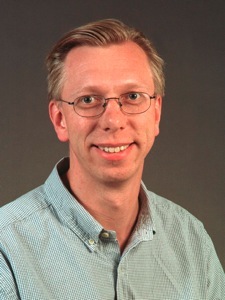October 30, 2018
Howard Hughes Medical Institute investigator from University of Illinois at Urbana-Champaign to give 2018 King Lecture

Wilfred A. van der Donk, Richard E. Heckert chair in chemistry at the Howard Hughes Medical Institute investigator and professor of genomic biology from the University of Illinois at Urbana-Champaign, will present the 2018 King Lecture in the chemistry department at 1:30 p.m. Thursday, Nov. 8, in 4 King Hall.
Van der Donk is a well-known expert on natural product biosynthesis and has won numerous awards including the Bioorganic Chemistry Award from the Royal Society of Chemistry in 2016, a Merit Award from NIH-NIGMS in 2016, the Repligen Award from American Chemical Society in 2017, and the Vincent du Vigneaud Award from the American Peptide Society in 2017. He will lecture on the "Biosynthesis and Engineering of Cyclic Peptide Antibiotics."
Abstract: The genome sequencing efforts of the first decade of the 21st century have revealed that ribosomally synthesized and post-translationally modified peptides (RiPPs) constitute a very large class of peptide natural products. These molecules are produced in all three domains of life, their biosynthetic genes are ubiquitous in the currently sequenced genomes, and their structural diversity is vast. Lanthionine-containing peptides (lanthipeptides) are examples of this growing class and many members are highly effective antimicrobial agents that display nanomolar minimal inhibitory concentrations (MICs) against pathogenic bacteria (lantibiotics). These peptides are post-translationally modified to install multiple thioether crosslinks. During their biosynthesis, a single enzyme typically breaks 8-16 chemical bonds and forms 6-10 new bonds with high control over regio- and chemoselectivity. This presentation will discuss investigations of the mechanisms of these remarkable catalysts as well as their use for the generation of non-natural cyclic peptide libraries.
If you would like to visit with van der Donk, contact Ping Li at pli@k-state.edu.